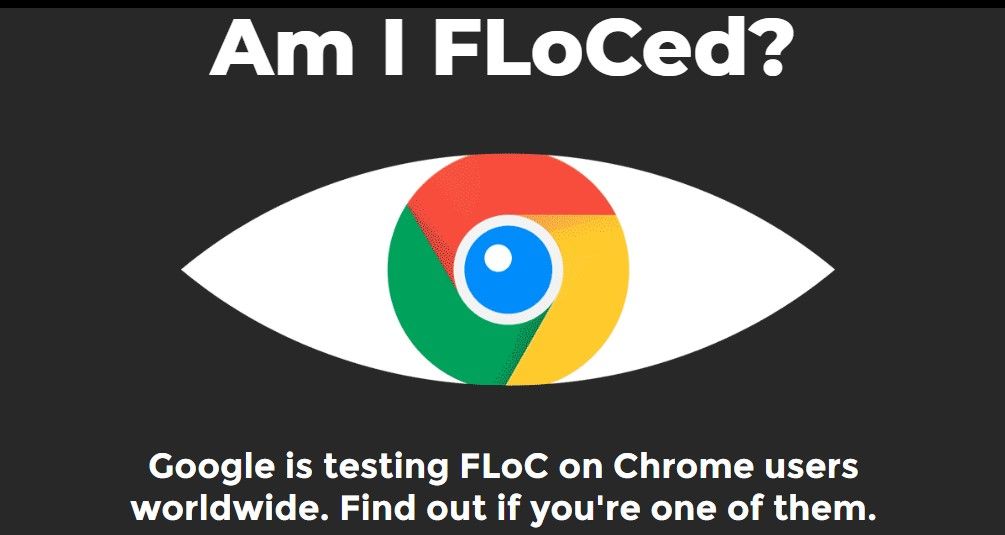- If security and privacy are issues that concern users more and more, it makes sense to know all the details about how Google FLoC works, and how it affects you
- Before blocking third-party cookies in 2022, Google is conducting tests with this tracking system created by themselves, and that generates great controversy among users
- Now, in the event that we are not entirely satisfied with Google FLoC we will have to opt for some other browser, choosing between those that focus on security, and those that are based on Chromium
Chrome is the world's most widely used browser, so it hardly needs an introduction, even when we know less than we think about how it works. During the past year, while many of us were more aware of the pandemic than anything else, Google introduced a novelty that may, eventually, lead us to abandon Chrome. But what is Google FLoC and how does it work?
Google FLoC -Federated Learning of Cohorts-, is an API focused on privacy and open source that Mountain View developers added to their browser in January 2020, after Google decided to block third-party cookies , something that will be final completely next year..
This is nothing new, considering that other famous browsers such as Firefox or Safari followed those same steps in the past, always in pursuit of protecting the privacy of users .
Let's talk about follow-up
But to understand everything that is happening, the first thing is to talk about the monitoring of our web activity. Virtually all browsers have a system that takes care of this and, in most cases, we are talking about cookies. You probably know them because the sites you visit ask if you accept them, and the truth is that, although you can choose not to, then your experience will be affected ..
These cookies, which are responsible for remembering your username, password, language preferences and items added to the cart, in case of being an e-commerce, are intended to provide us with a more fluid navigation.
The problem is that, over time, they can also pose a risk to our security. A threat to privacy through the browser, obtaining personal data that can then be used for targeted advertising. Or, in the worst case, be sold for use in Big Data..
And what is Google FLoC then?
Rather than automatically blocking cookies, Google aims to review the way users are tracked online. Thus, FLoC is an experimental tracking function, its federated learning cohorts .
Thus, instead of exposing details about individual users, FLoC replaces the tracking cookie with a "cohort" identifier, which is then used to group people with similar interests .
The idea is that digital advertisers can use these cohorts to create a list of sites that all users in a cohort visit. And, if the interests of those users are similar, this cohort identifier can be used for ad targeting. All this, without our security being in check.
What are your goals?
FLoC aims to give digital advertisers a way to target ads without exposing details about individual users. And it tries to do so by grouping together people with similar interests.
This is thanks to the fact that it replaces the tracking cookie with a new "cohort" identifier that represents not a single user, but a group of users with common interests.
As a result, advertisers can create a list of the sites that all users in a cohort visit, but not the history of an individual user. If the interests of the users in a cohort are really similar, this cohort identifier can be used for ad targeting.
Obviously, digital advertisers are already working on ways to improve the accuracy of this tracking technology. By associating someone with several groups of cohorts, it is theoretically possible to place them within a much smaller cohort. And that should lead to absolutely personalized ads .
Experts are concerned that this will allow companies to collect user information more easily. Scanning your FLoC ID when you first visit a site now would give businesses a lot of information up front. Even when it's probably more private, it could be less secure .
So far, no other browser at this time has shown interest in implementing the FLoC ID. Eventually we would have to see what we find in such a situation.

How to disable FLoC in Chrome?
If you are part of the Google FLoC tests, you still have the possibility to exit the project, and it is not difficult. We have even made an article on how to deactivate FLoC in Google Chrome, which we suggest.
And how do you know if you are "FLOCKED"? You can check it on the website amifloced.org .
Another possibility, thinking in the long term, is to try your luck with browsers that put special emphasis on the issue of security. There are several, such as Avast Secure Browser , Avast's browser, which brings cool features like automatic AdBlock, built-in VPN, and "strong" encryption.
In any case, if firms like Google (and its parent company, Alphabet) intend to make privacy a priority, they should start by minimizing potentially unsafe tracking practices .
Then, everything depends on what we are willing to accept, or not, as users.
If as a result of FLoC you decide to abandon Chrome permanently, and Avast Secure Browser does not convince you, you can still find an alternative that leaves you alone and with which you feel comfortable, among the best Chromium-based browsers. Being developed in this way, the experience is similar to that of Chrome.